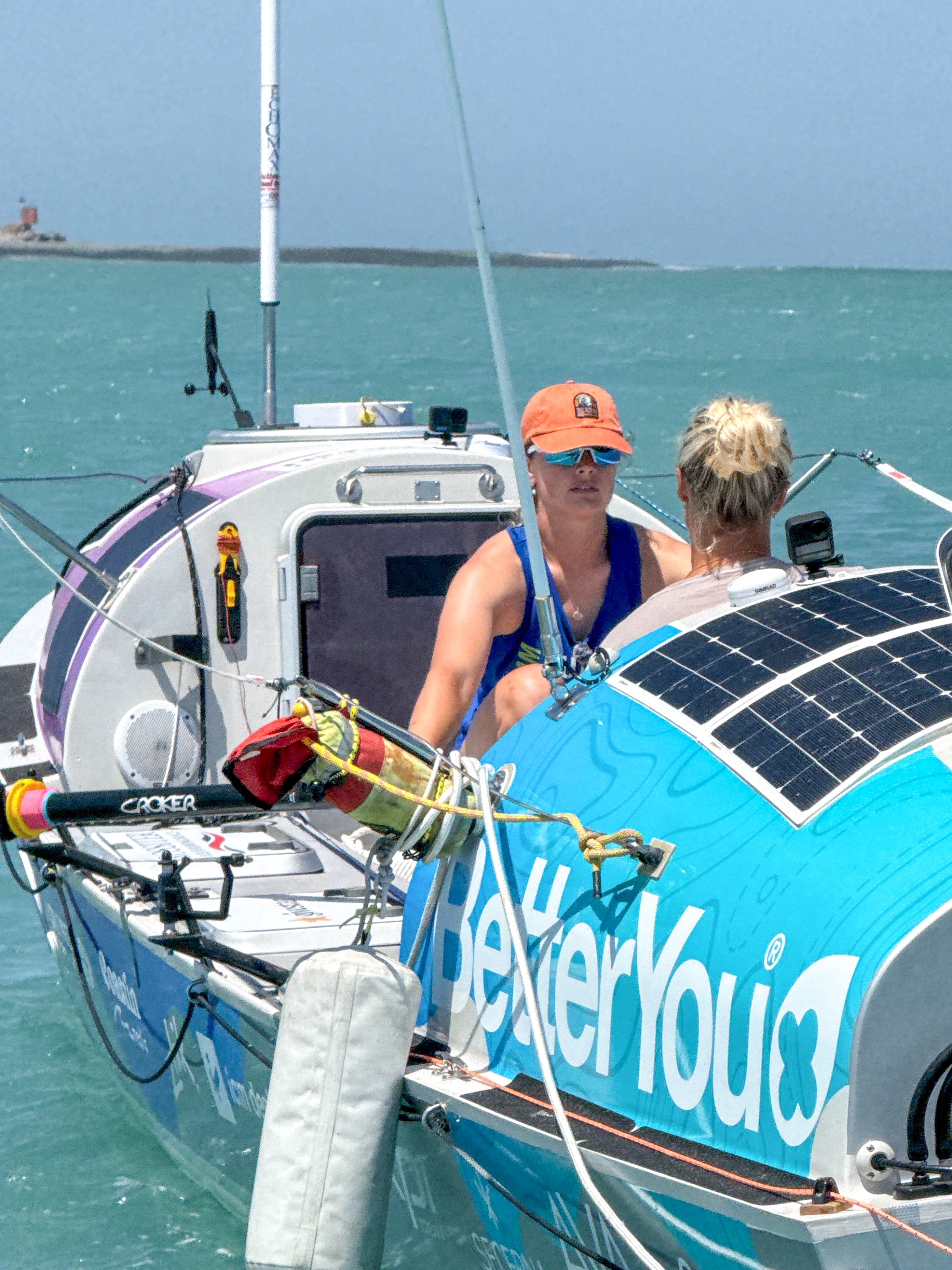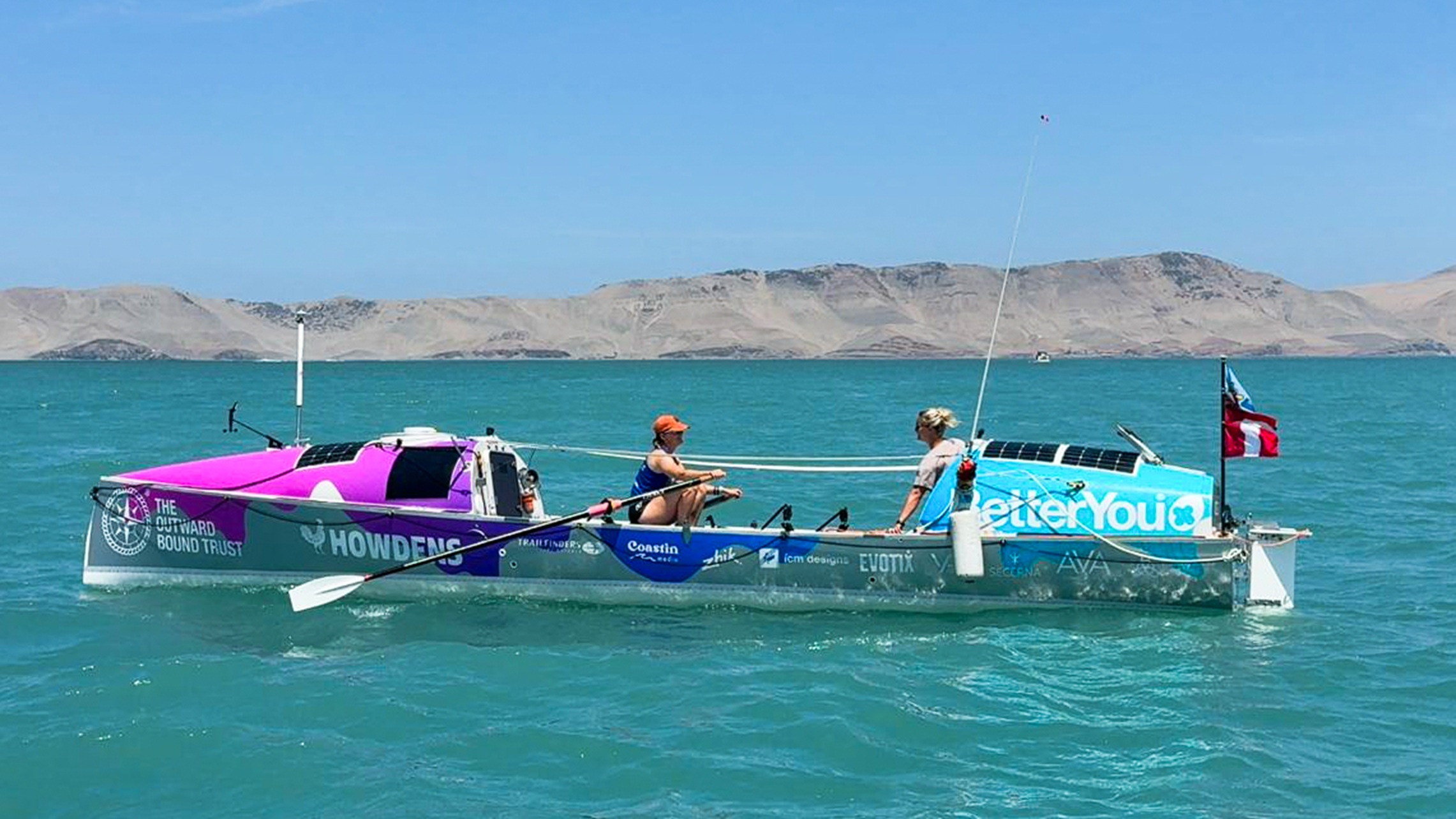UK women rescued one week into pioneering row across Pacific after rudder breaks
Miriam Payne and Jess Rowe will re-attempt their row from Peru to Australia.

Two UK women aiming to be the first team to row the Pacific Ocean unsupported were rescued in the first week of their challenge following a broken rudder.
Miriam Payne, 25, from East Yorkshire, and Jess Rowe, 28, from Hampshire, took on an 8,000km journey from Peru to Australia on April 8 but their plans were thwarted after a broken rudder forced them to return to shore.
The pair travelled 350km in around seven days before they discovered issues with their rudder and were forced to stay adrift using a parachute anchor to steady the boat while waiting for rescue.
Their friend and translator in Peru, Alec Hughes, rescued the duo. He took about a week to reach them before towing their nine metre-long rowing boat named Velocity back to their start point of La Punta in Lima, which took around eight days.

Despite the setback, the duo remained in good spirits and hope to look back at the experience fondly.
“We definitely didn’t expect a broken rudder a week in, that was rather unexpected. But it’s part of the journey and I guess we’ll look back and have a good laugh about it in the end,” Ms Payne told the PA news agency.
Ms Rowe told PA: “Although it is massively disappointing to have to restart, it’s quite cool that we got to spend another three weeks at sea.”
Ms Payne described the broken, but recently refurbished, rudder as “one of these freak things” after it “completely delaminated and split open”, which usually happens after suffering a big impact such as a strong wave.
She added the journey back ashore was deliberately slow to ensure the boat remained undamaged.
“One of the worrying things about being on tow is it’s not very safe to tow a boat because it can cause a lot of damage,” Ms Payne said.
“Ocean rowing boats go so slow, so it’s really hard to find a vessel that will tow at such a slow speed so we went at about three or four knots.”
They aimed to eat 5,000 calories a day but were forced to ration their food during their journey back to shore.
They ate 1,500 calories per day of their pre-prepared snack packs but the pair said it was a struggle.
“We’d wake up in the morning and we’d both grab a snack pack, and we’d have the munchies for about an hour, and then the snack pack was totally gone,” Ms Rowe said.
“We’d eaten everything and we said, ‘Oh, no. What we gonna do for the rest of the day?’
“It was quite tricky when we were under tow because we’re going quite fast and we’re going upwind. We were getting waves over the top of the boat constantly.”
The pair are aiming to raise money for the Outward Bound Trust, a UK-based charity helping children develop lifelong skills through adventure, and they hope their challenge – and setback – will inspire young children to explore the outdoors.
“Hopefully we can inspire more kids to spend more time outdoors and know that if everything does go wrong, don’t give up, basically, just keep going,” Ms Rowe said.
“You always learn so much from things going wrong.”
Ms Payne added their journey might help to “instil curiosity back into children” after being in awe of the ocean.

“When you get out there (at sea) it’s a bit like being a child again because you feel a lot more wonder at the world, like everything is amazing,” she said.
“I think the Outbound is incredible because it’s kind of instilling that curiosity back into children in a way.”
The pair met in 2022 in the Canary Islands when they were preparing for The World’s Toughest Row – previously known as the Talisker Whisky Atlantic Challenge – for which they rowed 3,000 miles across the Atlantic.
They hope to attempt their challenge again from Monday in a journey expected to take six months to reach Sydney Harbour, in Australia.





